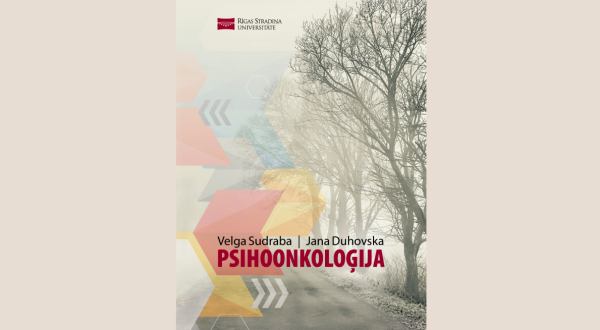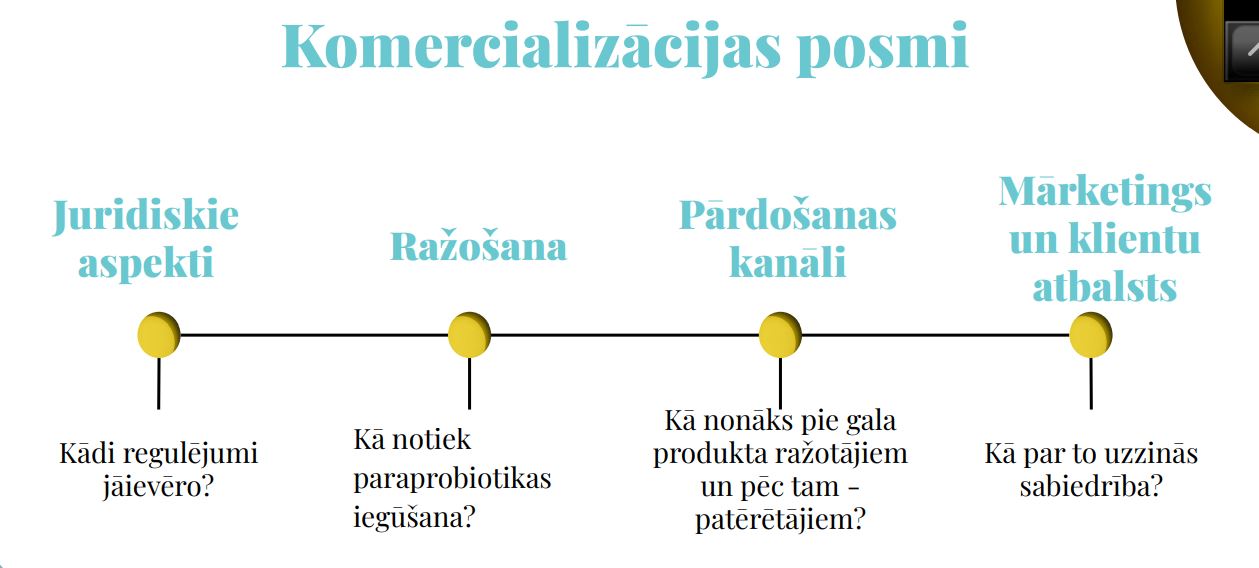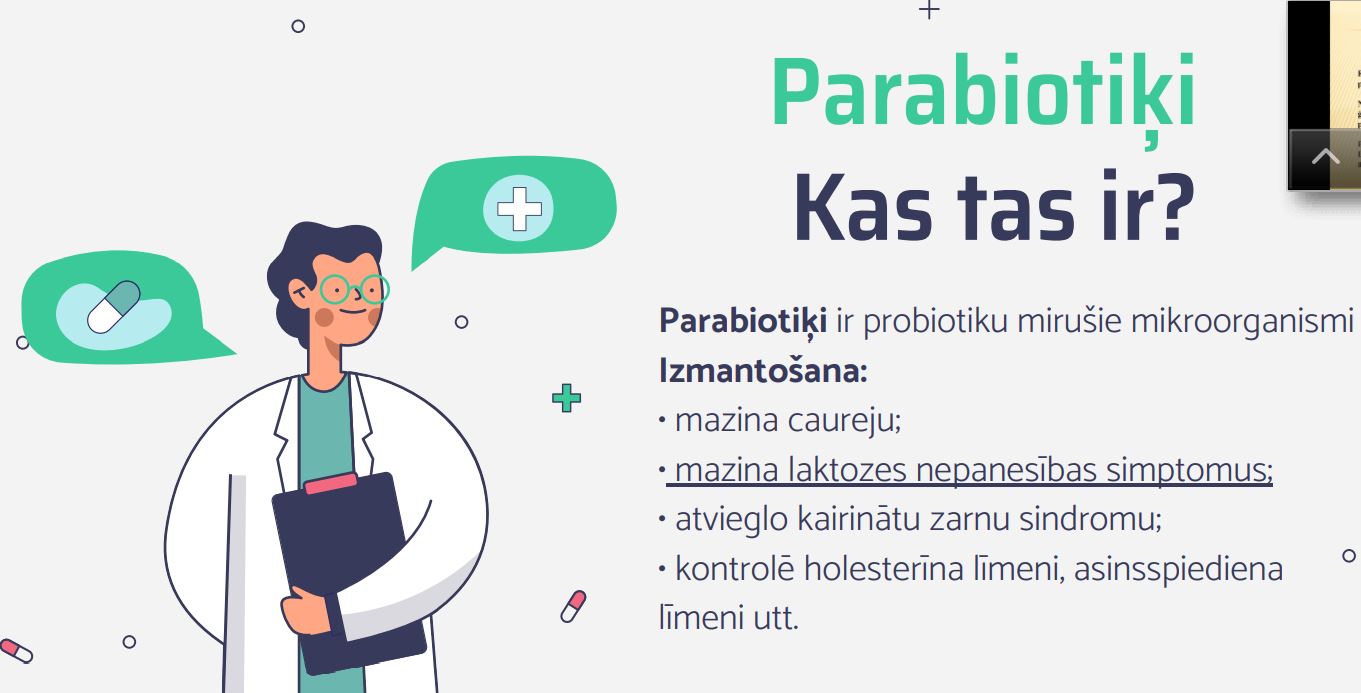Business Students Practice Their Commercialisation Skills in a Simulated Study Environment
Researchers from Rīga Stradiņš University (RSU) have developed a new technology for obtaining non-living bacteria (paraprobiotics). These can be used as a raw material in the production of new functional foods or food supplements. There is still a lot of work to be done in order for RSU researchers’ innovations to successfully enter the market, create public benefit and profit from the discovery, and this is called commercialisation.
Kristīne Blumfelde-Rutka, a lecturer at the Faculty of European Studies and an expert in business and marketing, is involved in the project’s commercialisation phase and used her experience to create a simulated environment for RSU students. She didn’t just involve the students, but also industry experts and RSU graduates.
The university is a great platform for researchers, experts and students to meet
In the project’s commercialisation phase, lecturer Blumfelde-Rutka involved prospective entrepreneurs, marketing and advertising specialists, and start-up managers – 2nd year students from the International Marketing and Advertising and International Business and Sustainable Economy bachelor's programmes and 3rd year students from the International Marketing and Advertising and Start-up Entrepreneurship bachelor's programmes.
Student presentation
Students had the opportunity to consult with three experts: Līga Žūka, Researcher and the Commercialisation Expert of the project “Improvement of Glycopeptide Isolation Technology and Studying of Their Immune-Modulating Properties (II phase)”, graduates of the Management of International Marketing and Business master's programme at RSU, Zane Derdonska, the author of the study on commercialising ideas, as well as Head of the International Marketing and Advertising programme and Kristīne Blumfelde-Rutka, lecturer of the International Marketing and Development and Management of International Brands courses.
Students don’t only learn from experts but also from one another
The 3rd year students worked in teams, in which students from the Start-up Entrepreneurship programme were selected as group leaders. During their studies, these students have acquired specific knowledge and skills about the processes involved in commercialising ideas. In turn, International Marketing and Advertising students supplemented the team with their knowledge and skills in market research, product development, and marketing.
The 3rd year students worked in a simulated environment as the new product development unit of a company and created a task in relation to idea commercialisation for the 2nd year students. These students, in turn, formed a marketing agency as part of their International Marketing course.
While working in teams, the students prepared seven presentations exploring three main topics: a product’s competition assessment, research into a product’s commercialisation potential, and the development and promotion opportunitites for various products containing paraprobiotics (such as the ParaPro bar and a paraprobiotics drink).
The students’ creative ideas and suggestions will be useful for researchers
During the project, students studied the market potential of Latvia, Germany, Italy, and Finland, as well as the largest pharmaceutical and food production companies in specific markets that could be interested in the technology developed by researchers at RSU. Students also researched the consumer behaviour patterns in the German market, which is a very important aspect of putting new products on the market.
Students gave their presentations on Zoom
‘The students presented very interesting ideas for how to develop various products that could include paraprobiotics. They also assessed the potential of these products and drew up recommendations for how these products could be promoted on the market,’ said Žūka.
‘In my opinion, both students and researchers benefit from a collaboration like this.’
Related news
 Book on psycho-oncology: resource for studies, professional practice and patient supportPsychology, For Students, Books
Book on psycho-oncology: resource for studies, professional practice and patient supportPsychology, For Students, Books





